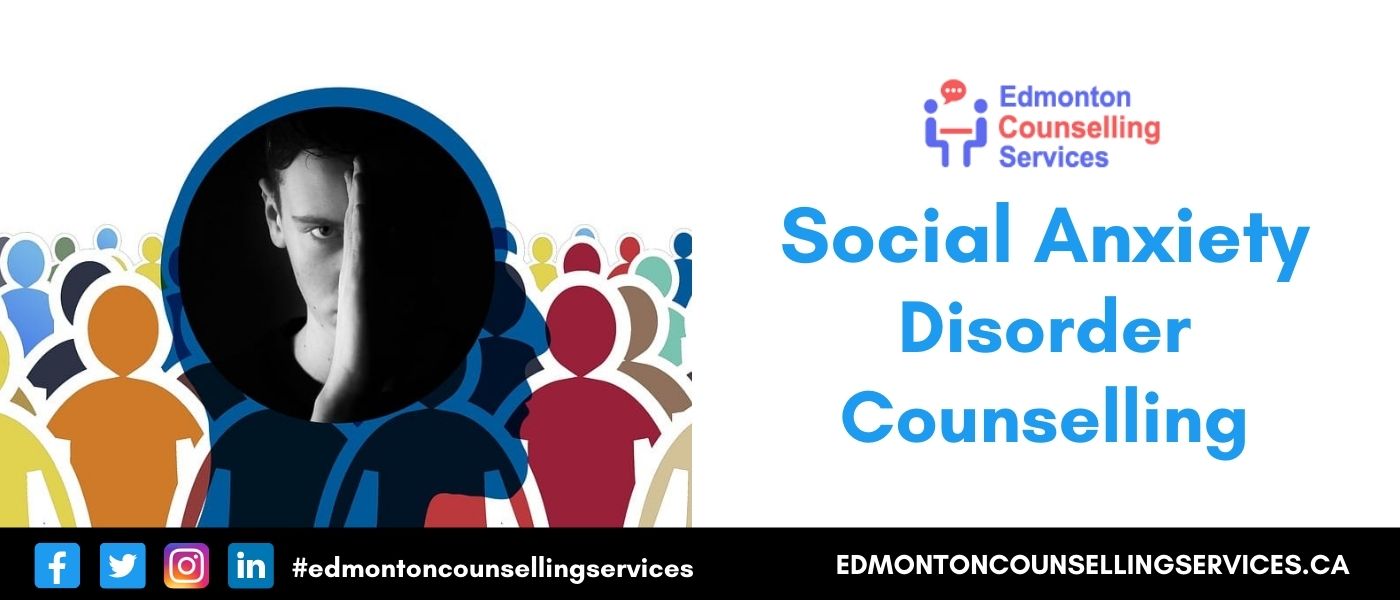Counselling for anxiety disorder available online and in-person near you
Wiki Article
Effective Strategies in Therapy for Anxiousness Disorder: A Course to Healing
When dealing with stress and anxiety disorders, you could really feel overloaded and unclear of where to transform. Reliable counselling approaches can pave the way for healing, providing you with the tools to browse your challenges. From cognitive-behavioral techniques to mindfulness methods, each approach uses unique benefits. Comprehending exactly how these approaches work with each other can make a substantial difference in your journey. What are the key elements that will assist you in the direction of lasting modification?Recognizing Anxiousness Conditions: An Extensive Review
It's crucial to acknowledge that they include an array of problems defined by too much fear or worry when you think regarding anxiousness problems. These conditions can show up in numerous methods, consisting of generalised anxiety disorder, panic problem, and social anxiousness disorder. You might experience symptoms like quick heart beat, sweating, or difficulty focusing. It prevails to feel overloaded, and these feelings can interfere with everyday life.Understanding the root triggers of anxiety is essential. They can come from genetics, brain chemistry, or ecological elements. You may discover that specific circumstances activate your anxiety, making it vital to determine these triggers.Cognitive Behavior Treatment (CBT): Reshaping Idea Patterns

Mindfulness and Relaxation Techniques: Growing Present-Moment Understanding
Mindfulness and leisure strategies aid you grow present-moment recognition, permitting you to manage anxiousness better. By focusing on the present moment, you can damage without the cycle of worry and rumination that often fuels anxiety. Beginning by practicing deep breathing exercises. Breathe in gradually via your nose, hold for a moment, after that exhale via your mouth. This basic method can relax your mind and body.Engage in mindfulness meditation by reserving a few mins every day to observe your thoughts without judgment. Focus on your breath, sensations, and the audios around you. You might likewise locate value in dynamic muscular tissue leisure, where you strained and kick back each muscular tissue group, advertising physical and psychological ease.Incorporating these methods right into your day-to-day routine can produce a greater sense of control, reduce stress and anxiety symptoms, and enhance your overall well-being. Keep in mind, consistency is key to experiencing the benefits.Exposure Treatment: Encountering Worries Gradually
Exposure treatment aids you face your fears progressively, allowing you to build self-confidence in time. By utilizing progressive exposure techniques, you can gradually confront what makes you distressed while creating efficient coping systems. This procedure not just reduces your concern yet additionally encourages you to take care of anxiety a lot more properly.Progressive Direct Exposure Strategies
When you challenge your fears gradually, you can successfully reduce anxiousness and reclaim control over your life. Progressive exposure methods involve encountering your worries tip by action, starting with much less intimidating situations. You could start by visualizing the been afraid circumstance, after that advance to checking out pictures or videos associated with it. At some point, you can practice facing the fear in reality, yet just when you really feel all set. This technique enables you to build confidence as you relocate with each phase. Remember to rate on your own; hurrying can enhance anxiety. Celebrate little victories along the road, as each progression empowers you. By continually applying these techniques, you'll discover that your anxieties start to lose their grasp on your mind.Building Coping Systems
Building efficient coping mechanisms is important for managing anxiety, especially as you encounter your fears progressively with direct exposure treatment. Start by identifying your specific anxieties and breaking them down into workable actions. In this manner, you can gradually challenge each worry without ending up being overwhelmed. As an example, if you fight with social scenarios, start by exercising tiny interactions, like welcoming a neighbor.Alongside gradual direct exposure, integrate relaxation techniques such as deep breathing or mindfulness to soothe your mind prior to facing triggers. Keep a journal to track your progression and commemorate small success. Border on your own with encouraging friends or a therapist that can guide you. Bear in mind, it's a journey-- persistence and determination will certainly reinforce your coping mechanisms, resulting in greater strength versus anxiousness.Supportive Counseling: Structure Depend On and Rapport
To efficiently support someone with stress and anxiety, establishing trust and rapport is crucial from the very initial session. You'll intend to develop a safe room where they feel comfortable sharing their ideas and sensations without judgment. Energetic listening is crucial; show real rate of interest in what they share. Acknowledge their feelings and verify their experiences. It is necessary to be understanding, as this helps develop a link and motivates openness.Be constant in your technique and maintain privacy to further strengthen that trust fund. Usage open body movement and make eye get in touch with to share your attentiveness. Bear in mind, your patience goes a lengthy means; structure relationship takes time, and it's crucial to appreciate their speed. By fostering this encouraging atmosphere, you'll equip them to involve more completely in the therapeutic process, making it less complicated for them to discover their anxiousness and pursue healing.Team Therapy: Shared Experiences and Cumulative Recovery
Team therapy can be an effective tool for those handling stress and anxiety problems, as it enables people to share their experiences and discover relief in the understanding of others. In this helpful setting, you can share your sensations without concern of judgment. Listening to others' tales can normalize your very own experiences, making you really feel less alone in your struggle.Participating in team treatment assists you create coping strategies with shared knowledge and understandings. As you pay attention to others, you might uncover brand-new means to tackle your stress and anxiety that you had not considered before.Moreover, the cumulative recovery that takes place in these sessions can promote a feeling of community, reminding you that you're not encountering your challenges alone.Building links with others who understand your battle can boost your self-confidence and inspiration to face your stress and anxiety. Group treatment produces an area where development and healing become a common journey, empowering you to take steps towards recovery.Incorporating Way Of Life Changes: Holistic Strategies to Anxiousness Management
While therapy offers essential assistance, integrating way of living modifications can significantly improve your capability to handle anxiousness. Start by including regular physical activity into your regimen. Exercise releases endorphins, which can elevate your mood and decrease tension. Next, pay interest to your diet plan. Eating a balanced diet regimen abundant in fruits, vegetables, and entire grains can positively affect your psychological wellness. Don't ignore sleep-- go for 7-9 hours per evening, as top quality rest is essential for psychological regulation.Mindfulness practices, such as reflection or yoga exercise, can additionally help you stay grounded and existing. Take into consideration establishing apart time each day to exercise these techniques. Limit caffeine and alcohol consumption, as they can exacerbate stress and anxiety symptoms. By making these holistic modifications, you produce a stronger structure for handling anxiousness, complementing the benefits acquired from therapy. Remember, every tiny step matters on your course to recuperation.Often Asked Concerns
What Are the Typical Physical Symptoms of Anxiety Disorders?
Typical physical signs of anxiousness disorders consist of fast heart price, shortness of breath, muscular tissue tension, sweating, and frustrations. You may additionally experience fatigue, lightheadedness, or gastrointestinal problems, which can additionally complicate your daily life.The Length Of Time Does Counseling for Stress And Anxiety Commonly Take?

Counseling for anxiousness generally takes a couple of weeks to several months, relying on your specific needs and progress. counselling for anxiety. You'll locate that routine sessions help you develop dealing approaches and get insights into your anxiousness
Can Anxiousness Problems Be Completely Healed?

What Should I Perform in a Panic Assault?
During an anxiety attack, concentrate on your breathing. Breathe in deeply with your nose, hold for a moment, then breathe out gradually - counselling for anxiety. Ground yourself by calling items around you, and advise on your own it will certainly passAre There Medications for Anxiety Problems?
Yes, there are a number of medications for anxiety conditions, consisting of antidepressants and benzodiazepines. You should consult a healthcare specialist to discover the appropriate therapy strategy tailored to your details requirements and conditions for the very best outcomes. When you think about anxiety disorders, it's essential to acknowledge that they incorporate an array of conditions identified by extreme concern or concern. These problems can show up in numerous methods, including generalised anxiety condition, panic problem, and social anxiousness problem. Structure reliable coping mechanisms is important for taking care of anxiety, especially as you encounter your concerns progressively via direct exposure treatment. Team treatment can be an effective tool for those dealing with stress and anxiety disorders, as it permits people to share their experiences and locate relief in the understanding of others. As you listen to others, you may discover brand-new means to tackle your anxiousness that you had not thought about before.Moreover, the cumulative recovery that happens in these sessions can foster a sense of neighborhood, reminding you that you're not facing your difficulties alone.Building links with others that understand your struggle can enhance your confidence and motivation to face your anxiousness.Report this wiki page